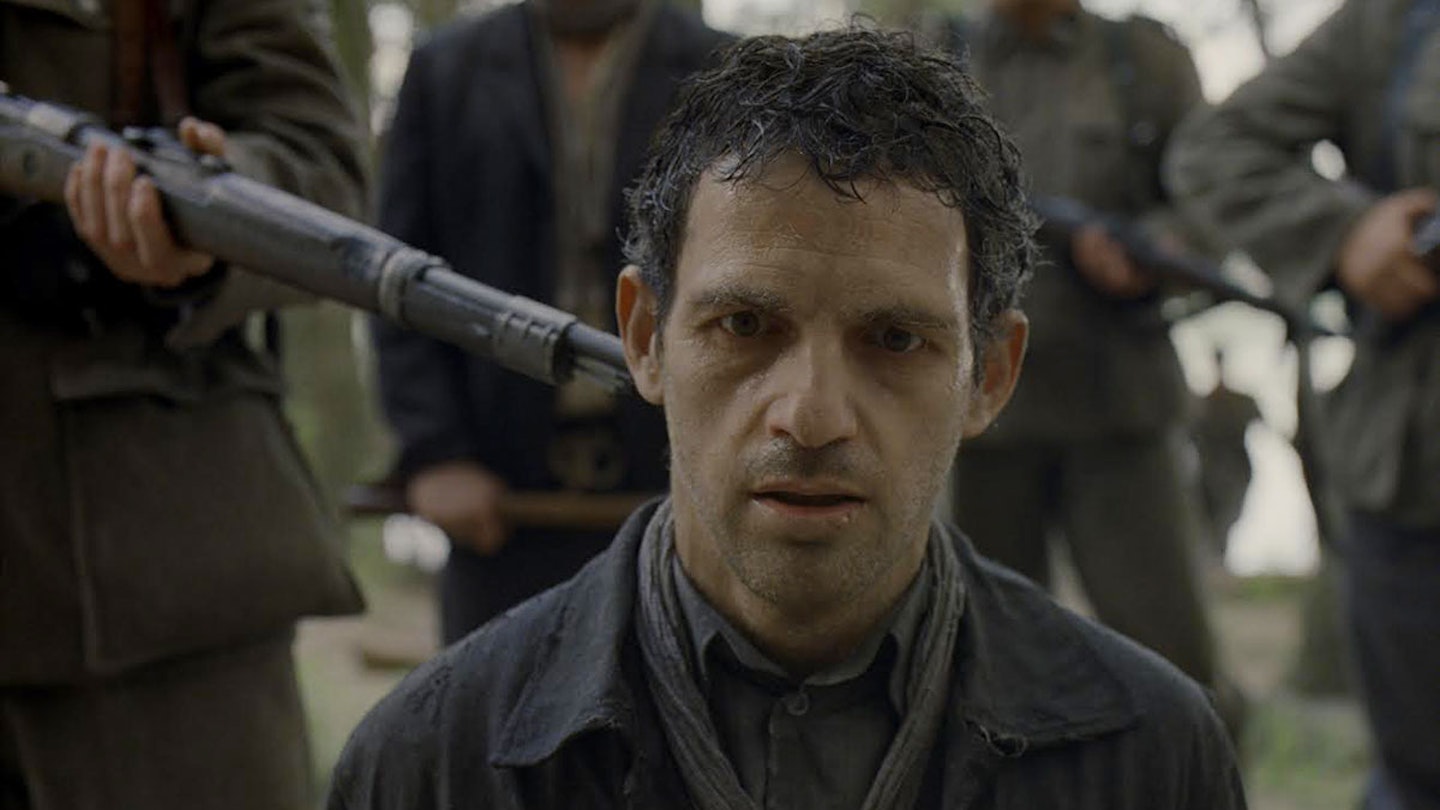At the end of François Truffaut's 400 Blows, its young hero famously turns to the camera and stares defiantly into the eyes of the audience. Imagine that moment magnified across two bleakly magnificent hours and you have this remarkable debut from Hungarian director László Nemes. It's a film that bores straight into your soul and leaves you shattered, but somehow richer for having seen it.
It's a film that bores straight into your soul and leaves you shattered, but somehow richer for having seen it.
Where Schindler's List adopted the perspective of those herded into the camp, Son Of Saul rides shotgun with one of Auschwitz's maligned Sonderkommando. Afforded special privileges in return for labouring in the gas chambers, Saul wears the haunted pallor of a man who know he's still destined to die, just not when or how. A red cross on his shirt is the only protection from a summary, anonymous death. The line between life and death has never been literal.
We meet Saul at the chaos of the camp railhead, shepherding his fellow Jews, terrified and disorientated, unwittingly to their deaths. The camera fixes on his face in shallow focus throughout, the chaos and horror of his world often just a background blur that's soundtracked by the bark of Nazi guards, the clank of metal doors and the muffled chatter of his fellow unit members.
In this maelstrom, Saul stumbles, somewhat improbably, upon a dead child he takes to be his son. From there, he embarks on a mission to find a rabbi to give him a Jewish burial, doggedly negotiating Nazi doctors, an all-pervading sense of fatalism and a planned camp uprising in his quest for recover some humanity from this hell. Face grizzled with the horrors he's witnessed, jaw fixed in determination, Röhrig's Saul lingers long in the mind. It's a remarkable performance, all the more so for being his first.
There's no easy sentiment here, no saccharine to sweeten the pill, but in reconstructing camp life in all its confusion, micro-detail and half-glimpsed horrors, Nemes lends its protagonist's quest something approaching mythical status. The result is a mighty testament to the human spirit - and its potential for depravity. Like Trauffaut's young hero, rebelling against his institution prison, it's a film that blazes with unforgettable defiance.


